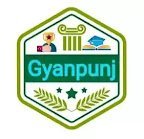GYANOUNJ QUIZ, DATE:- 10/08/2020
KNOLEDGE IS MORE IMPORTANT IN EDUCATION.
The facts confirm that information gives understudies something to consider, yet a perusing of the examination writing from psychological science shows that information does considerably more than simply assist understudies with sharpening their reasoning aptitudes: It really makes learning simpler. Information isn’t just total, it develops exponentially. Those with a rich base of genuine information think that its simpler to find out more — the rich get more extravagant. Furthermore, verifiable information improves psychological cycles like critical thinking and thinking. The more extravagant the information base, the more easily and adequately these psychological cycles — the ones that instructors target — work. Along these lines, the more information understudies collect, the more intelligent they become. We’ll start by investigating how information carries more information and afterward go to how information improves the quality and speed of thinking.GYANPUNJ QUIZ
GYANOUNJ QUIZ, DATE:- 10/08/2020
The more you know, the simpler it will be for you to learn new things. Learning new things is really a consistent cycle, however so as to consider it and comprehend it better, intellectual researchers have moved toward it as a three-phase measure. What’s more, they’ve discovered that information helps at each stage: as you first take in new data (either by means of tuning in or perusing), as you consider this data, and as the material is put away in memory. We’ll think about every one of these phases thusly.
The primary stage wherein authentic information gives you an intellectual edge is the point at which you are taking in new data, regardless of whether by tuning in or perusing. There is significantly more to appreciating oral or composed language than knowing jargon and grammar. Perception requests foundation information since language is brimming with semantic breaks in which information is accepted and, in this way, understanding relies upon making right inductions. In an easygoing discussion, the audience can accumulate missing foundation information and keep an eye on his surmisings by posing inquiries (e.g., Did you mean Bob Smith or Bob Jones? What do you mean when you portray him as a business visionary?) — yet this isn’t the situation when viewing a film or perusing a book. (Also, at times it isn’t the situation in class when an understudy is too humiliated to even consider asking an inquiry.)
Understanding a content in order to take in new data is only the principal phase of discovering that new data; the second is to consider it. This occurs in what intellectual researchers call working memory, the organizing ground for thought. Working memory is regularly alluded to allegorically as a space to stress its restricted nature; one can keep up just a restricted measure of data in working memory.
Information improves thinking in two different ways. To start with, it causes you take care of issues by opening up space in your working memory. Second, it causes you dodge thinking by going about as a prepared gracefully of things you’ve just idea about (e.g., in the event that you’ve remembered that 5 + 5 = 10, you don’t need to draw two gatherings of five lines and tally them). To streamline the conversation, I’ll center generally around research that investigates the advantages of information for critical thinking, which is basically the sort of reasoning that understudies must do in arithmetic and science classes. However, remember that similarly, information additionally improves the thinking and basic reasoning that understudies must do ever, writing, and different humanities classes.
In the last segment, I talked about one route that earlier information helps perusing: It permits you to piece some data, which leaves more space in working memory to figure out the ramifications of a book. You get a lot of a similar advantage on the off chance that you are attempting to tackle an issue. In the event that you don’t have adequate foundation information, just understanding the issue can devour the greater part of your working memory, leaving no space for you to think about arrangements.
Related post :-
